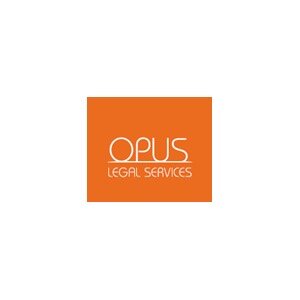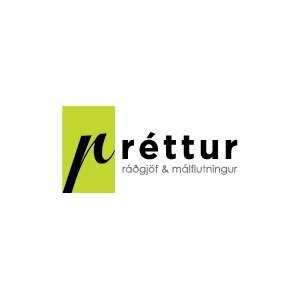Best Real Estate Lawyers in Reykjavik
Share your needs with us, get contacted by law firms.
Free. Takes 2 min.
Free Guide to Hiring a Real Estate Lawyer
List of the best lawyers in Reykjavik, Iceland
About Real Estate Law in Reykjavik, Iceland
Reykjavik, the capital of Iceland, is a vibrant city that offers diverse real estate opportunities ranging from residential apartments to commercial properties. The real estate market in Reykjavik can be competitive, driven by factors such as economic stability, tourism, and a growing population. Navigating this market requires a solid understanding of the local laws and regulations that govern real estate transactions.
Why You May Need a Lawyer
Engaging a lawyer for real estate transactions in Reykjavik is advisable in several scenarios:
- Purchasing Property: Ensuring the property has clear title, drafting purchase agreements, and handling negotiations.
- Selling Property: Managing contracts, disclosures, and ensuring compliance with regulatory requirements.
- Property Disputes: Resolving issues related to property boundaries, landlord-tenant disputes, or breach of contract.
- Commercial Leasing: Drafting and reviewing lease agreements, negotiating terms, and handling lease disputes.
- Property Development: Navigating permits, zoning laws, and environmental regulations.
Local Laws Overview
The legal framework governing real estate in Reykjavik includes several key aspects:
- Property Ownership: Icelandic law allows both Icelandic and foreign nationals to own property, but foreign nationals may require permission from the Ministry of Justice.
- Land Registry: All real estate transactions must be registered with the Icelandic Land Registry to be legally binding.
- Zoning Laws: Zoning regulations determine how land can be used (residential, commercial, industrial) and are governed by municipal plans.
- Environmental Laws: Environmental regulations address issues such as land use, pollution control, and conservation, impacting property development.
- Taxation: Real estate transactions are subject to various taxes, including property tax, capital gains tax, and stamp duty.
Frequently Asked Questions
Do I need a lawyer to buy property in Reykjavik?
While it is not legally required, hiring a lawyer is highly recommended to safeguard your interests, especially if you are unfamiliar with Icelandic law.
Can foreigners buy property in Reykjavik?
Yes, foreigners can buy property in Reykjavik, but they may need to obtain permission from the Ministry of Justice.
What are the typical costs involved in buying property?
Costs can include purchase price, legal fees, registration fees, property tax, and potential costs for property inspection and valuation.
How long does it take to complete a property transaction?
The transaction process can take several weeks to a few months, depending on the complexity and the parties involved.
What is the role of a notary in real estate transactions?
In Iceland, notaries verify and authenticate documents, ensuring that the transaction is legally binding.
What taxes apply to real estate transactions?
Property transactions may incur property tax, capital gains tax, and stamp duty. The rates and applicability vary based on the specifics of the transaction.
What are the landlord-tenant laws like in Reykjavik?
Landlord-tenant relationships are regulated by tenancy laws which cover aspects like rent control, eviction procedures, and maintenance responsibilities.
How are property disputes resolved?
Property disputes can be resolved through negotiation, mediation, or litigation in court. A lawyer can help guide you through these processes.
Can I lease my property to tourists?
Short-term rentals are regulated and may require specific permits due to zoning laws and municipal regulations.
Are there restrictions on property development?
Yes, property development is subject to zoning laws, environmental regulations, and building codes. Permits from local authorities are usually required.
Additional Resources
The following resources may be helpful for those seeking more information on real estate in Reykjavik:
- Icelandic Land Registry (Þjóðskrá Íslands)
- Ministry of Justice (Dómsmálaráðuneytið)
- Reykjavik Planning Office (Skipulagsstofnun Reykjavíkur)
- Association of Real Estate Agents (Fasteignasala)
Next Steps
If you need legal assistance in real estate, consider the following steps:
- Research and Prepare: Gather all relevant documents and information about the property or issue at hand.
- Consult a Lawyer: Seek legal advice from a qualified lawyer specializing in real estate in Reykjavik.
- Documentation: Ensure all agreements and transactions are documented and registered with the appropriate authorities.
- Follow Up: Stay engaged throughout the process, attending any necessary meetings and keeping track of deadlines.
Lawzana helps you find the best lawyers and law firms in Reykjavik through a curated and pre-screened list of qualified legal professionals. Our platform offers rankings and detailed profiles of attorneys and law firms, allowing you to compare based on practice areas, including Real Estate, experience, and client feedback.
Each profile includes a description of the firm's areas of practice, client reviews, team members and partners, year of establishment, spoken languages, office locations, contact information, social media presence, and any published articles or resources. Most firms on our platform speak English and are experienced in both local and international legal matters.
Get a quote from top-rated law firms in Reykjavik, Iceland — quickly, securely, and without unnecessary hassle.
Disclaimer:
The information provided on this page is for general informational purposes only and does not constitute legal advice. While we strive to ensure the accuracy and relevance of the content, legal information may change over time, and interpretations of the law can vary. You should always consult with a qualified legal professional for advice specific to your situation.
We disclaim all liability for actions taken or not taken based on the content of this page. If you believe any information is incorrect or outdated, please contact us, and we will review and update it where appropriate.
Browse real estate law firms by service in Reykjavik, Iceland
Reykjavik, Iceland Attorneys in related practice areas.













